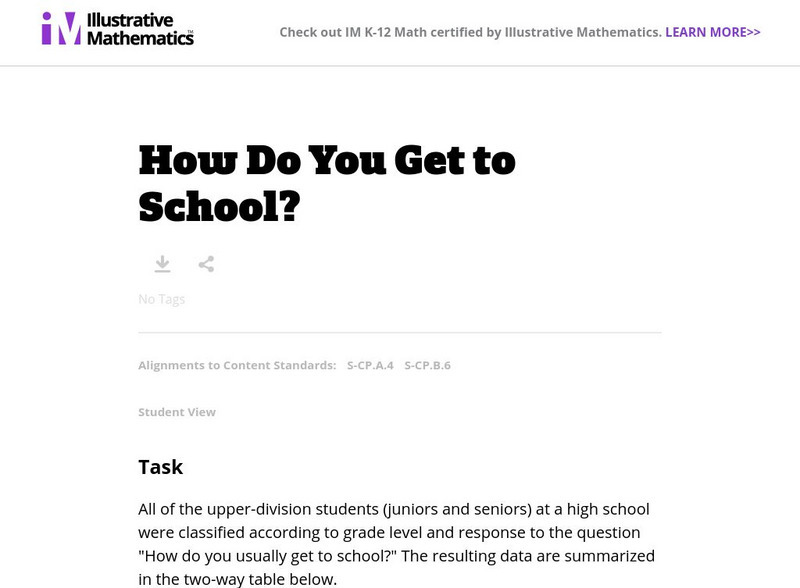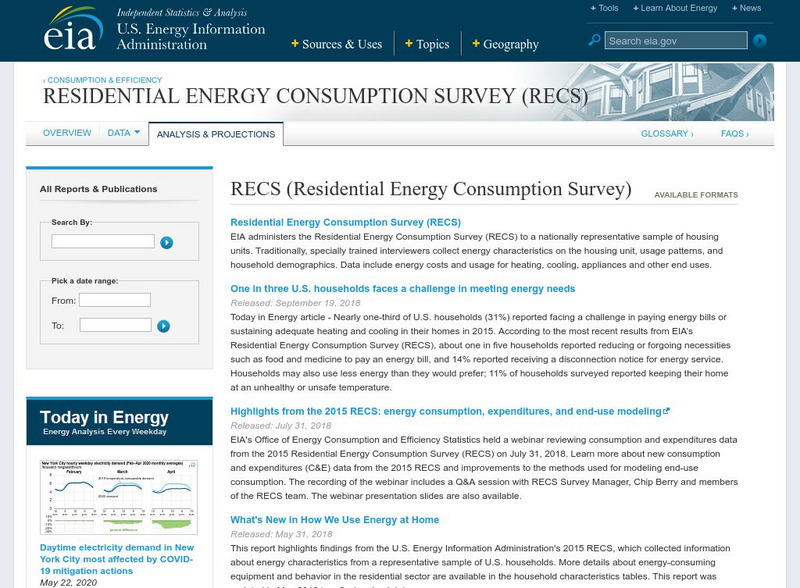Hi, what do you want to do?
Shodor Education Foundation
Shodor Interactivate: Comparison of Univariate and Bivariate Data
Young scholars learn about the difference between univariate and bivariate data and understand how to choose the best graph to display the data.
US Census Bureau
United States Census Bureau: Population Projections Tables
Series of projections for different years.
Web Elements
Web Elements Periodic Table: Chromium
A very good summary of the key data and chemical and physical properties of chromium.
The World Bank
World Bank Group: Gnp Per Capita
The World Bank Group offers an educational overview of GNP per capita. Content includes a map, charts, data, photos, cases, research, and exercises!
Other
Kindergarten lessons.com: Graphing Activities
Graphing activities for preschool and kindergarten include collecting data and organizing it in a variety of ways. There are lots of fun things to do in this area of math and the activities integrate well with science and literacy...
Illustrative Mathematics
Illustrative Mathematics: F Le Choosing an Appropriate Growth Model
The goal of this task is to examine some population data for large cities from a modeling perspective. Students are asked to decide if the population data can be accurately modeled by a linear, quadratic, and/or exponential function, and...
Florida-Spectrum Environmental Services
Florida Spectrum: Chemical Fact Sheet: Arsenic
Good site for basic data and uses of arsenic with an especially thorough summary of environmentally relevant information.
Florida-Spectrum Environmental Services
Florida Spectrum: Chemical Fact Sheet: Fermium
This site provides a fact sheet with information on the basic data and properties of Fermium. It also includes some of its uses.
Illustrative Mathematics
Illustrative Mathematics: 8.sp.4 Music and Sports
This task looks at a possible relationship between playing a sport and playing a musical instrument. Students collect data from classmates, summarize the data into a two-way table, make some observations, and construct a bar graph of the...
Illustrative Mathematics
Illustrative Mathematics: F Le Basketball Bounces, Assessment Variation 2
This task asks students to analyze a set of data about the height of a basketball for each time it bounces. They choose a model that reasonably fits the data and use the model to answer questions about the physical context. This second...
Illustrative Mathematics
Illustrative Mathematics: F Le Us Population 1982 1988
In this task, students are shown a table of U.S. population data between 1982 and 1988 and are asked to explore whether linear functions would be appropriate to model relationships within the data. Aligns with F-LE.B.5 and F-LE.A.1.b.
Illustrative Mathematics
Illustrative Mathematics: S Cp How Do You Get to School?
All of the upper-division students (juniors and seniors) at a high school were classified according to grade level and response to the question "How do you usually get to school?" The resulting data are summarized in a two-way table and...
Science and Mathematics Initiative for Learning Enhancement (SMILE)
Smile: Three States of Matter
Teachers can find an interactive lesson plan for introducing the three states of matter to the early elementary student using items that they are familiar with. This also includes gathering data and filling in a table, an important part...
US Energy Information Administration
Energy Information Association: u.s. Household Electricity Report
The report provides an overview of the electricity consumption in households in 2001. End-use (lighting, appliances, heating) data is presented in written, graph and table form. Background on efficiency standards and regional factors...
Illustrative Mathematics
Illustrative Mathematics: F Le Boiling Water
Students are shown two tables of data showing the approximate boiling point of water at different elevations. Both data sets can be modeled by linear functions but with different slopes. When the tables are combined, however, students...
Illustrative Mathematics
Illustrative Mathematics: 8.f Us Garbage, Version 1
Eighth graders work with input values (the year) and output values (the amount of garbage that year) in a table about the garbage produced in the US. They study the table to answer specific questions, state whether it represents a linear...
Illustrative Mathematics
Illustrative Mathematics: F Le Us Population 1790 1860
In this task, students are shown a table of U.S. population data between 1790 and 1860 and are asked to explore whether exponential functions would be appropriate to model relationships within the data. The purpose of the task is to help...
Illustrative Mathematics
Illustrative Mathematics: F if a Sse Modeling London's Population
In this task, young scholars are shown a table of population data for the city of London and are asked to explore whether a linear, quadratic, or exponential function would be appropriate to model relationships within the data. They are...
Annenberg Foundation
Annenberg Learner: The Habitable Planet: Carbon Lab
An interactive lab simulation demonstrates the effects of increased carbon in the atmosphere and how that increase contributes to climate change. A data table for student records is available for download.
Bio Topics
Bio Topics: Pupils' Experiments With Osmosis in Carrot Tissue
An experiment that demonstrates the process of osmosis with pieces of carrots. Experiment includes procedure, data table, and post lab questions.





















